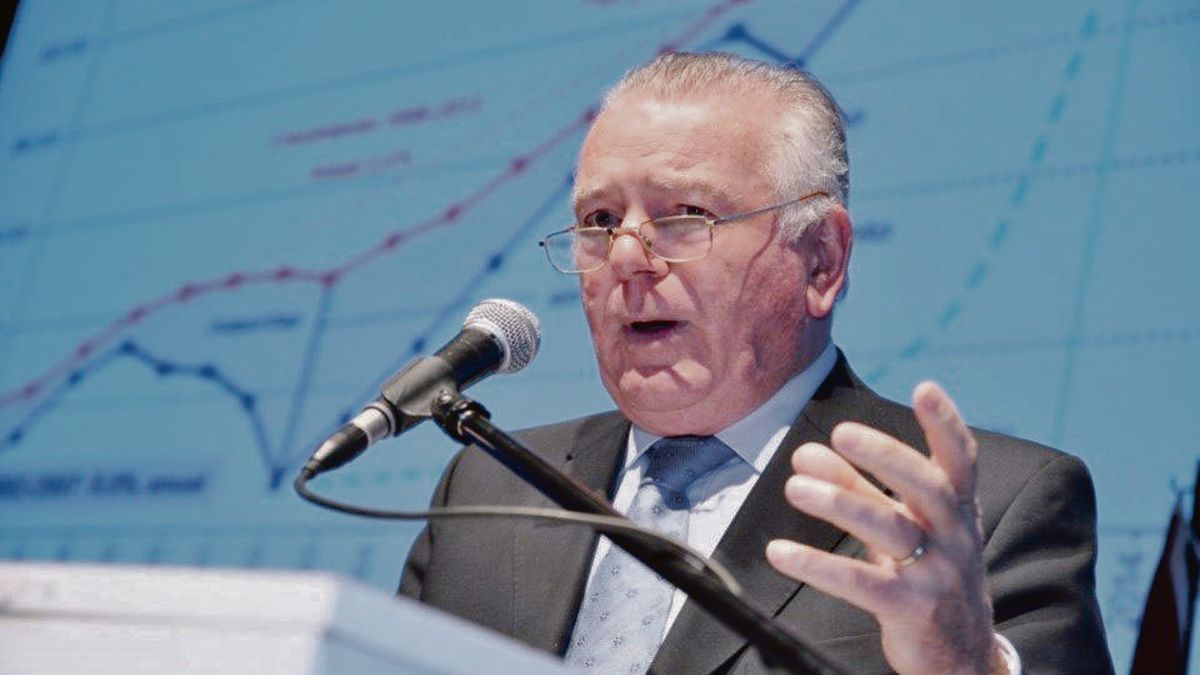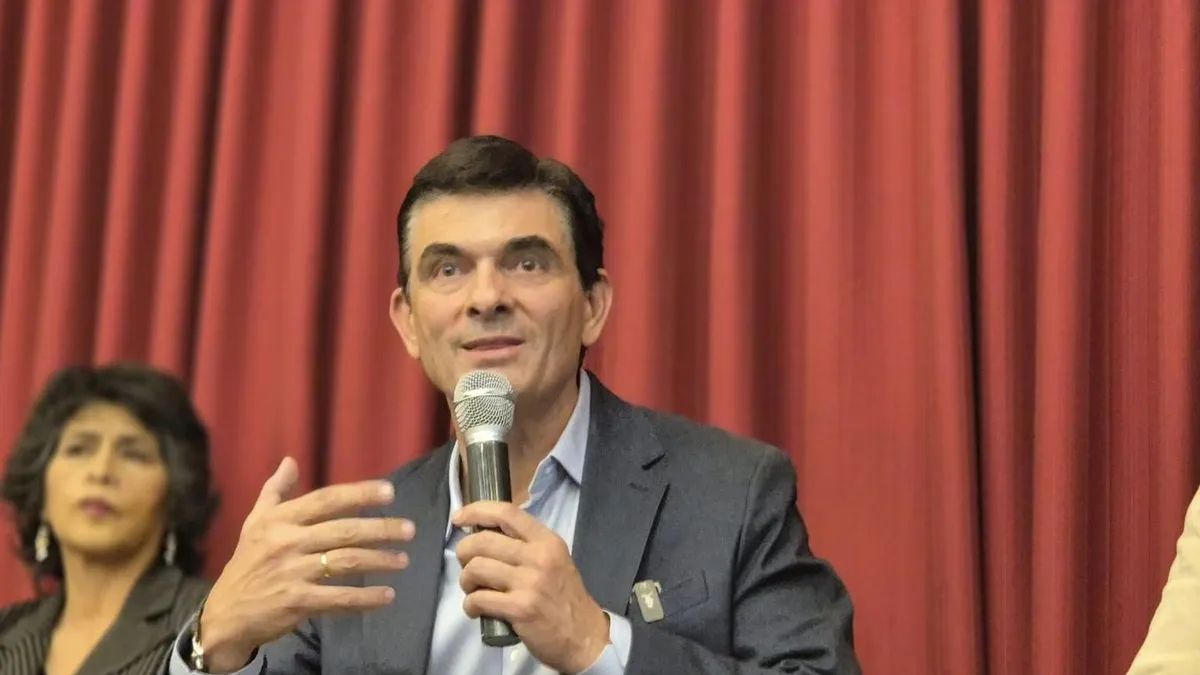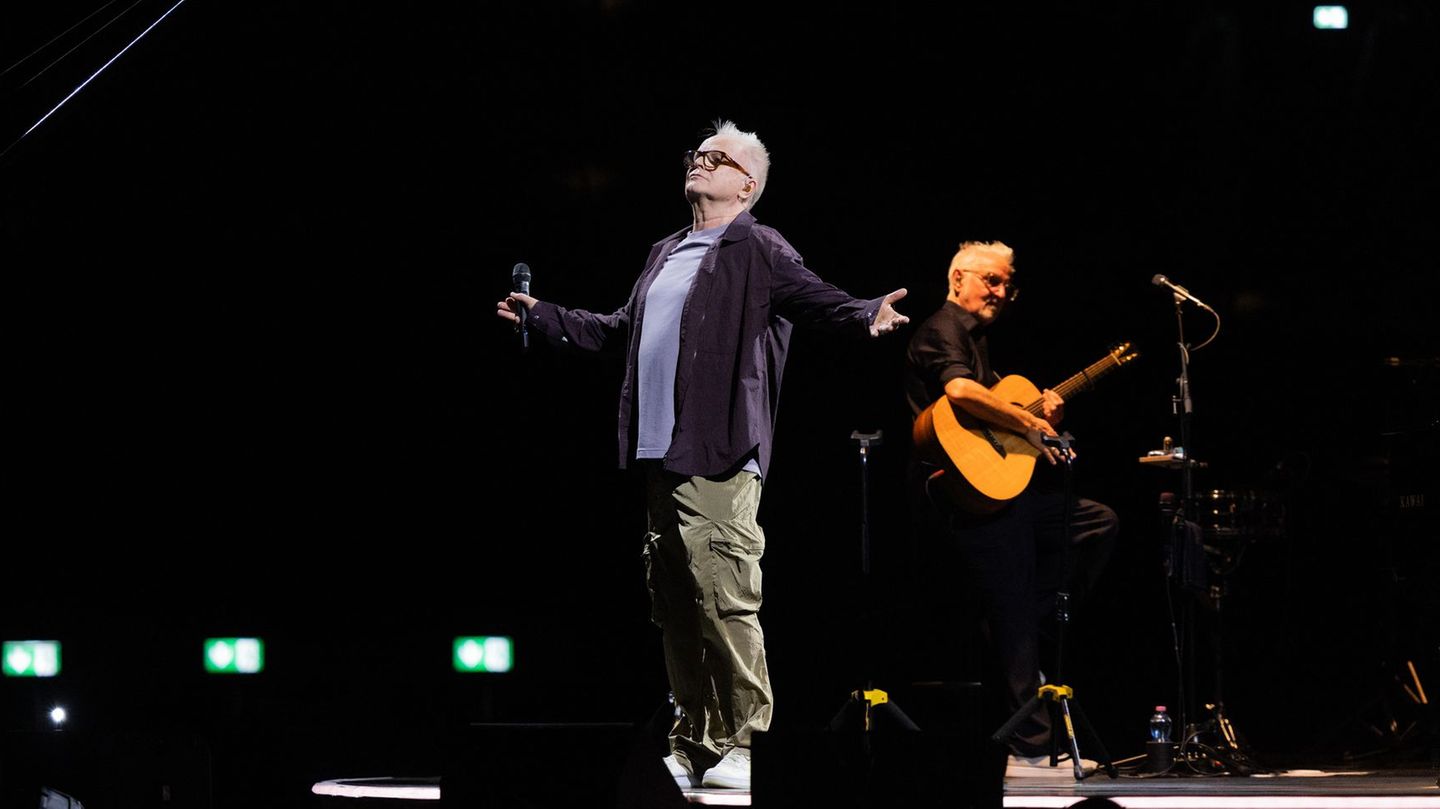Orlando Ferreres: Because there was no security about the evolution of the cost of living, so they waited a few days. It seems to me that another reason is not there to have that type of delay.
Q.: A cost of living that will be less than December, right?
Of: Yes, it is understood that it will be closer to 2%.
Q.: Is the annual dollar profit sustainable that is generating the Carry Trade?
Of: I think it is a rate that is not sustainable, but that at the moment the person who has to bring the dollars and uses the local interest rate to gain a difference is generating for the moment. It seems that this will not always be like that, but for the moment it is happening and the decline in the interest rate tries to moderate that perspective.
Q.: The Central Bank is buying dollars through the increase in foreign currency loans from the private sector. Do you consider it necessary to expand the hard currency debtor universe?
Yes. The fact of generating a new market in dollars, increasing deposits and above all loans, is an issue that whenever it is not done exaggerated, as happened in 2001, it may be important to be able to do it. Not for any issue, but for the issues that are related to the dollar as a source of income. That will be allowed whenever there is this restriction, which for now I do not see it possible, but that it could be overcome over time, as was the convertibility at the time, which was taken long -term money in dollars, although Then that produced a serious problem when he went out to pesification. We already did it once, let’s not have to do it again.
Q.: Is it correct to think that the exchange policy today is the heart of the model, above the fiscal adjustment?
Of: I believe that Milei’s decision to lower public spending to 25% of GDP is a fundamental decision to have an economy with much less taxes and without inflation. On the other hand, the idea of maintaining under the exchange rate is a fundamental, but short -dependent decision of this year 2025.
Q.: Do you think the real exchange rate is in a balance zone?
Of: There is still, because we do not have a fiscal problem, that does not change all things. The backward exchange rate is noted, for example, in tourism that comes out for Brazil, Chile, Uruguay, the United States and Europe. Living in Argentina costs more expensive than in other countries.
Q.: With this exchange rate, is there capital entrance?
Of: Now there is no capital entrance, there is entry of everything that is energy, oil and mining, which add to the income of the wet pampas. There are three sectors that are contributing a lot to the commercial balance and then gives a certain surplus, but we do not know if there will be capital entrance. We think so, that is probable.
Q.: What does this capital entry depend on?
OF: It basically depends on the promotion for investment, which is quite good with the Rigi law, but there is a lack of investment for small and medium -sized companies, for SMEs that are the most invest.
Q.: Is an orderly macroeconomy sufficient for investment?
Of: The investment will wait for the stocks to leave, the stock makes it difficult to enter capitals just because it prevents the exit of them, that point is essential, but I think it will be fixed during this year with the loan of the International Monetary Fund , loans from private banks. Until now they achieved a reop at a rate of 8.8%, that can go down a little.
Q.: The latest Bank of America report marks that the IMF could pay $ 10,000 million case that Argentina devalue 30%. Do you see that possibility viable?
Of: No, I don’t see her very viable. It seems difficult for the government to do that, especially in a year in which the main fight is against inflation, at least it will wait until the elections or more. Maybe it’s what should be done, but it’s not what is going to be done.
Q.: So how could the market take the possibility that the IMF would accept to renegotiate the debt to stretch matches, but not to disburse fresh money?
Of: Well, you can take it relatively well because the IMF has no need to disburse more fresh money. The government asks for it, but it is not a thing that will be deadly if it does not happen, because it can get loans from banks like the last one they obtained, lowering the risk of a country a little more I think it would easily be to get that money for A lower interest rate.
Q.: You might think that, without that money, the stock exit process would suffer a longer delay than expected.
Of: Of course it is a difficult situation, but we are also friends with Donald Trump, and it will help us to give us fresh money, so the government is certainly confident in the support of the United States.
Q.: How should that money be administered eventually? Should I bet on a fixed or flexible exchange rate?
Of: I think they would have to let the exchange rate float freely, it should not have it fixed, although now it has no choice but to do it, but I believe that fresh money will bring freedom to let the exchange rate Raise or fall according to market pressures. At first I understand that the dollar is going to rise, but it is not the safest.
Q.: Could you estimate how much can come up? Or is the question very abstract?
Of: It is very abstract, for now we can think that it will rise 15-20% in a year because that will be inflation of 25% by the year 2025.
Q.: There are economists who propose that the dollars entered by energy or mining may not be enough to compensate for loss for imports or consumption abroad. Do you agree with this idea?
Of: Yes, I see it similar. As much as there is a positive result in mining, oil and energy, that will not compensate for the rest of the movement and there could be a tension situation, I agree with other economists who think the same so we are about Agreement at that point of agreement. However, I believe that the government will be able to cope with that tension.
Q.: How?
Of: Regulating the amount delivered, it is the only way but for that it must be sure to have the necessary amount of dollars before opening the stocks, because now it is not encouraged to open it for fear that there could be a output current of capitals that were not incontable.
Q.: Are you worried about the opening of imports and the effect it may have on the national industry?
Of.: I think so, this happened several times in our country, it is cheaper to import than to produce locally, I think it will have its influence in Argentina, hope that with the exit of the stocks that problem can be regularized.
Q.: What monetary scheme are we going? Are we going to a dollarization or currency competition?
Of: I think we are going to a coin competition, because more operations in dollars are approved every day and can be used for simpler things, not only to buy cars, departments or houses, but also to buy in the supermarket paying for paying directly, without going through credit.
I understand that this will flow into a currency competition that, consequently, will bring the extension of dollarization, but that does not mean that only dollars will be used to pay everything.
Q.: Do you think that a common citizen will vehicularize their dollars voluntarily to buy?
Of: It is more difficult, but if there is not much alternative it will have to risk a little, it can make it whitening them, paying in cash. I think it is the way it will be used.
Source: Ambito




